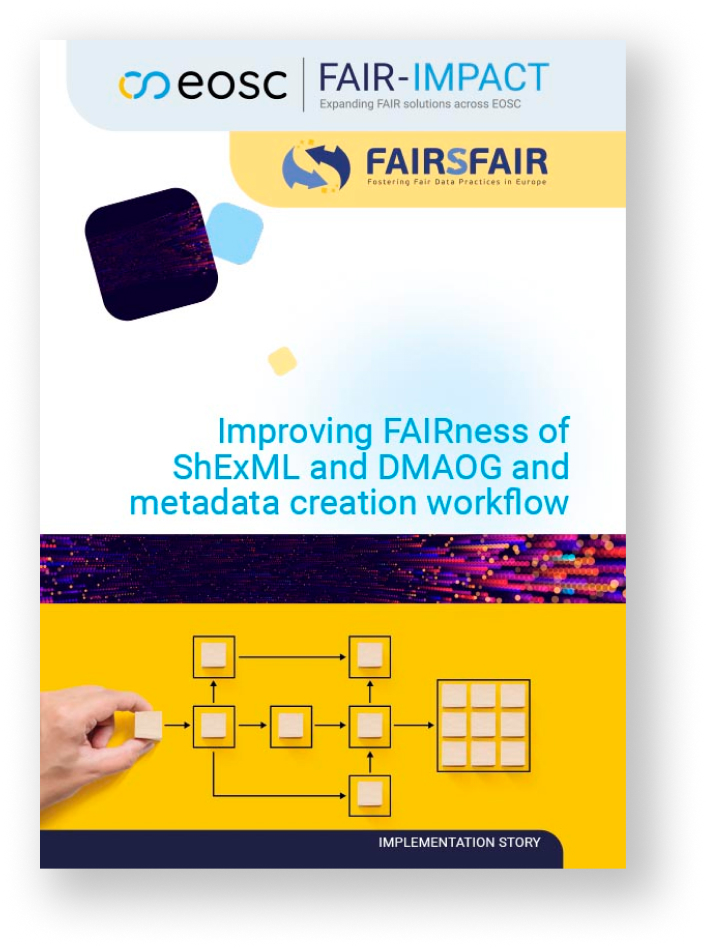Improving FAIRness of ShExML and DMAOG and metadata creation workflow
Software plays a crucial role in academic research, not only as a tool for data analysis but also as a research outcome or result, or even the object of research itself. FAIR (Findable, Accessible, Interoperable, Reusable) research software can increase the transparency, reproducibility, and reusability of research. For this to happen, software needs to be well-described (by metadata), inspectable, documented and appropriately structured so that it can be executed, replicated, built-upon, combined, reinterpreted, reimplemented, and/or used in different settings. The FAIR4RS Principles aim to guide software creators and owners on how to make their software FAIR. FAIR-IMPACT offered two support actions designed to enhance the FAIRness and impact of research software:
- Assessing and improving existing research software using a new extension of F-UJI which implements some of the metrics for automated FAIR research software assessment.
- Implementing the Research Software MetaData (RSMD) guidelines for better archiving, referencing, describing, and citing research software artefacts.
This FAIR Implementation Story outlines the specific aims and actions of Kazerne Dossin in relation to their participation in the support action for implementing the RSMD guidelines.
"This project addresses the implementation of the RSMD guidelines to two research software repositories: the Shape Expressions Mapping Language (ShExML) engine and the Data Mapping Access Objects Generator (DMAOG)."
Supported applicant: Herminio García González, Kazerne Dossin
